Future of Mental Health: Ketamine Combined With AI-Based Diagnostics


August 12, 2025
Revolutionizing Psychiatry for the Future
The future landscape of mental health treatment is on the cusp of transformative change, driven by the strategic integration of ketamine therapy with advanced AI-based diagnostic tools. This convergence promises more rapid, personalized, and accessible mental health care, addressing longstanding challenges in diagnosis, treatment efficacy, and resource availability.
Emerging Technologies in Mental Health Diagnostics and Treatment
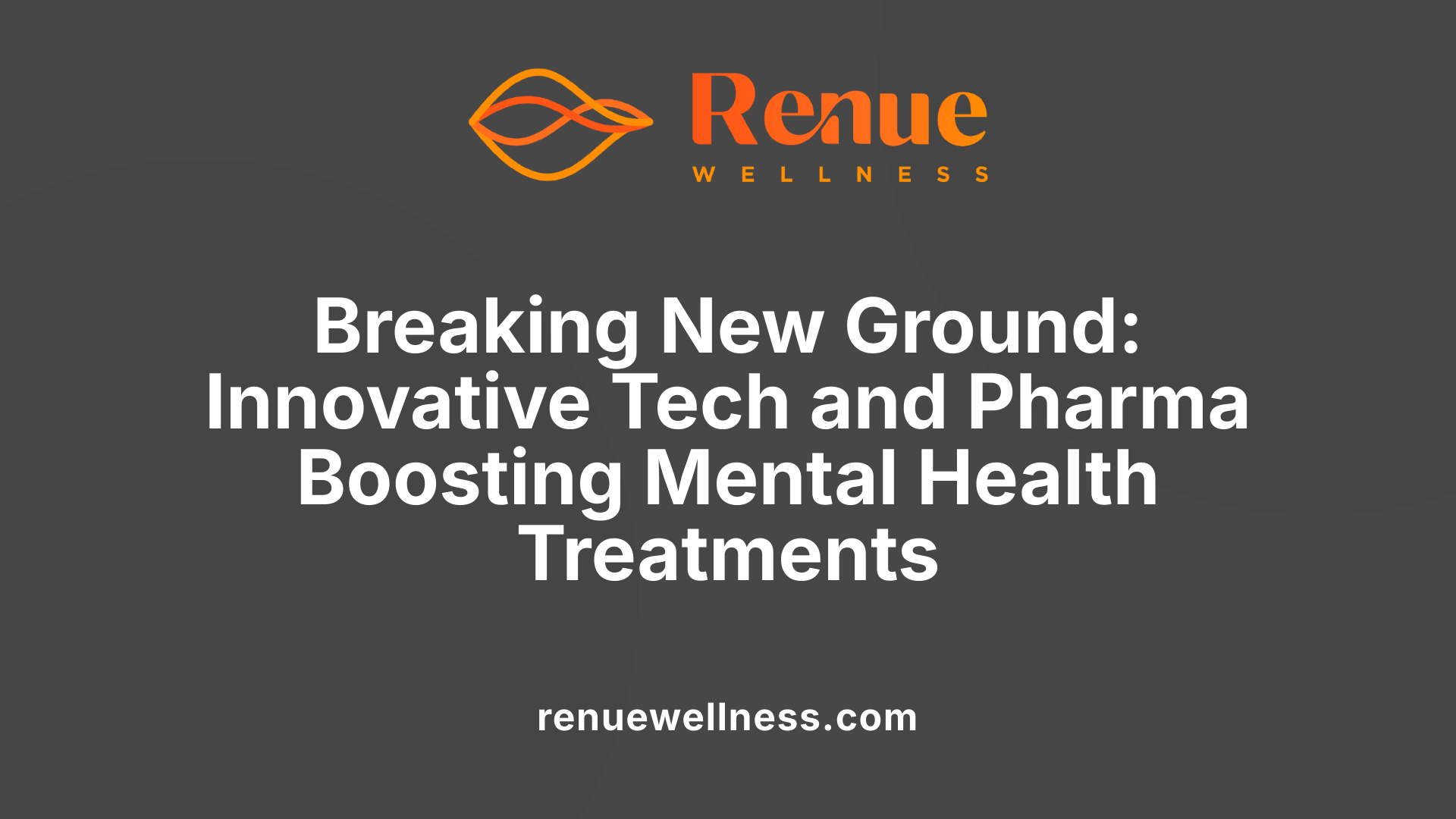
What are some recent technological and pharmaceutical innovations in mental health treatment involving AI?
Recent progress in mental health care is increasingly driven by artificial intelligence (AI). New diagnostic tools are now capable of analyzing speech, facial expressions, and written text to identify early signs of mental health conditions like depression, anxiety, and schizophrenia.
One significant innovation involves natural language processing (NLP), which helps analyze spoken and written language for emotional content and behavioral patterns. This technology can detect subtle shifts that might indicate deteriorating mental health, facilitating early intervention.
Facial analysis algorithms also play a crucial role. By assessing facial expressions and micro-expressions, AI systems can observe emotional cues in real-time, aiding clinicians in monitoring patient progress objectively.
Virtual mental health assistants, such as chatbots like Wysa and Woebot, offer 24/7 support to individuals. These chatbots use advanced NLP models to provide personalized conversations, guidance, and coping strategies. Their accessibility helps reduce stigma around seeking help and compensates for the shortage of mental health professionals, especially in remote or underserved areas.
AI is further integrated into treatment planning by analyzing complex data from genetics, behavioral patterns, and physiological signals collected via wearable devices and mobile apps. These insights enable the creation of tailored therapy plans that address individual needs more effectively.
Predictive analytics are also transforming mental health management. Machine learning models analyze large datasets—combining neuroimaging, genetic, behavioral, and electronic health record information—to predict the likelihood of mental health crises, such as suicidal episodes or the onset of psychosis. This foresight allows for timely intervention and personalized support.
In addition to diagnostics, AI supports ongoing treatment responses. Digital therapeutics leverage AI algorithms to assess patient progress objectively, adjusting interventions dynamically to improve outcomes.
Pharmaceutical developments are not left behind. AI-driven drug discovery accelerates the development of new medications by predicting molecular interactions and identifying promising compounds more efficiently. Although primarily focused on physical health, this approach holds promise for producing novel psychiatric medications and adjunct therapies.
While these innovations offer exciting advances, they are accompanied by ethical challenges. Data privacy, algorithm transparency, and maintaining human oversight are crucial to ensure safety and efficacy.
Overall, the integration of AI in mental health is fostering a new era of precision, accessibility, and proactive care, ultimately enhancing patient outcomes and mental health awareness across diverse populations.
AI's Role in Enhancing Psychiatric Diagnosis
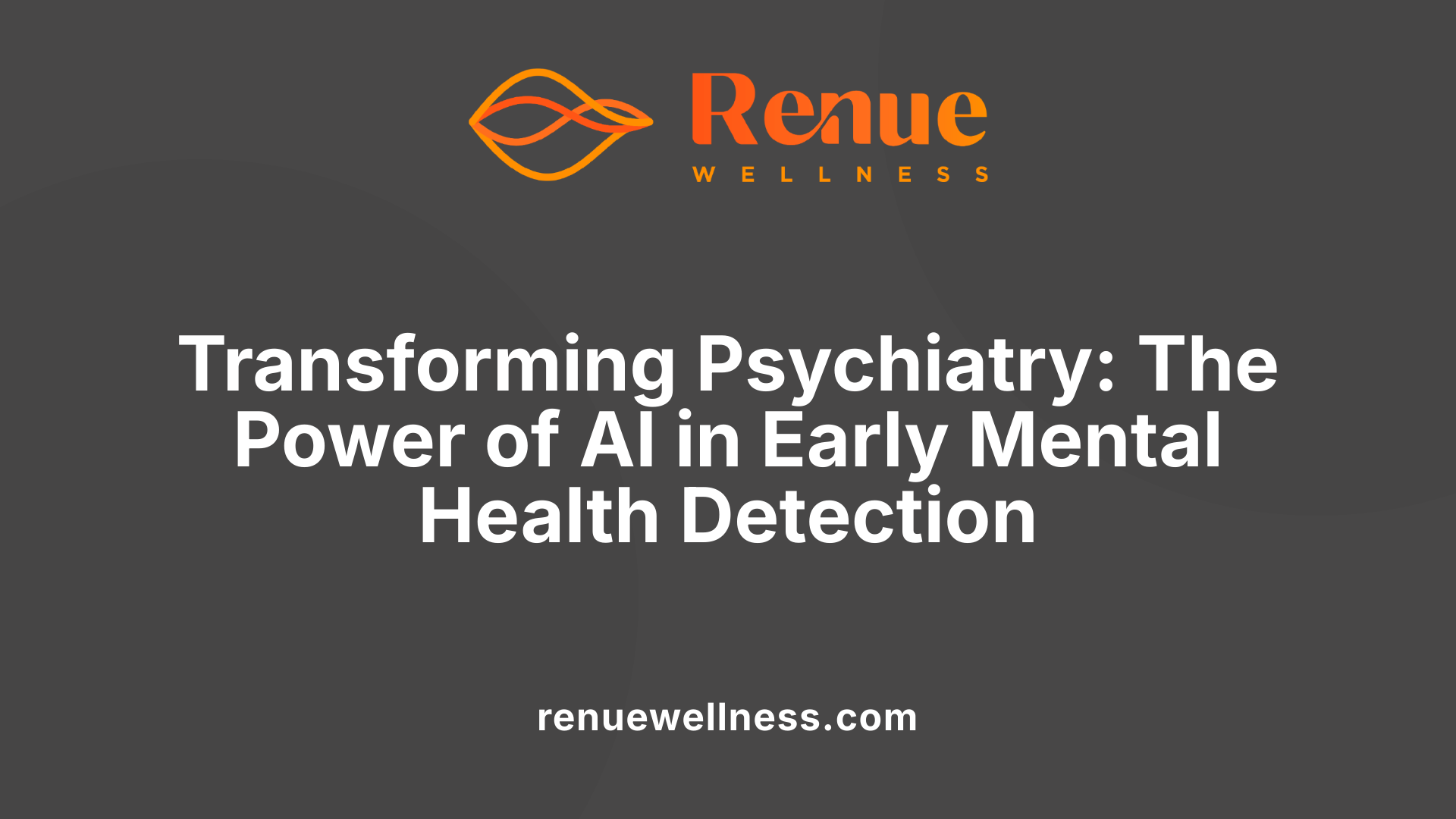
How does AI analyze speech, text, and facial expressions for mental health detection?
AI tools utilize technologies like Natural Language Processing (NLP) to analyze spoken and written language. These algorithms detect emotional states, such as depression or anxiety, by analyzing speech patterns, prosody, and linguistic cues. Facial expression analysis, using computer vision and deep learning, can identify subtle emotional cues, microexpressions, and changes in facial movements associated with mental health conditions. Together, these methods allow for early detection of mental health issues, often before clinical symptoms become fully apparent.
What role do neuroimaging and biomarkers play in AI-powered diagnosis?
AI employs advanced image analysis techniques, including deep learning, to interpret neuroimaging data from MRI or CT scans. These models can identify structural abnormalities linked to disorders like schizophrenia or depression. Additionally, AI-driven analysis of biomarkers, such as genetic markers and blood-based indicators, enhances understanding of mental illnesses at the biological level. Combining neuroimaging and biomarker data helps refine diagnostic accuracy, uncover new subtypes of mental conditions, and track disease progression.
How does integrating genetic, behavioral, and environmental data improve assessment?
Predictive models using AI incorporate diverse datasets—genetics, behavioral patterns, and environmental factors—to assess individual risk levels for developing mental health disorders. By analyzing genetic predispositions alongside lifestyle and environmental exposures, AI provides a comprehensive understanding of each patient's unique risk profile. This holistic approach enables earlier intervention and more targeted treatment strategies.
What is the significance of cluster analysis in classifying mental health disorders?
Cluster analysis, empowered by AI, helps identify homogeneous subgroups within broader, heterogeneous psychiatric populations. By analyzing multiple data dimensions—including neuroimaging, behavioral patterns, and clinical responses—AI clusters patients with similar symptom profiles or biological markers. This stratification improves diagnostic specificity and supports personalized treatment plans, moving beyond traditional categorical diagnoses.
How accurate and validated are AI models in mental health diagnosis?
AI diagnostic tools exhibit varying degrees of accuracy, often ranging from about 48% to 62%. Some models, especially large language models (LLMs), have shown potential to outperform clinicians in specific diagnostic tasks. Ongoing validation efforts, including rigorous testing with large, diverse datasets, aim to improve model reliability. The development of explainable AI (XAI) further enhances clinician trust by clarifying decision-making processes, ensuring that AI tools serve as effective support rather than replacements.
| Aspect | AI Application | Performance & Challenges |
|---|---|---|
| Speech & Facial Analysis | Emotion detection, early signs of depression/anxiety | Moderate to high accuracy, risk of bias |
| Neuroimaging & Biomarkers | Structural/functional brain abnormalities | Improved diagnostic specificity; needs validation |
| Multimodal Data Integration | Combining genetics, behavior, environment | Holistic risk assessment, ongoing validation |
| Clustering & Subtyping | Identifying patient subgroups | Advances personalized medicine; requires extensive data |
| Model Validation | Accuracy and reliability | Validation varies; ongoing improvements needed |
What ethical considerations are associated with AI in mental health?
The use of AI raises important issues such as privacy, data security, and informed consent. There is concern over algorithm transparency, potential biases, and overdiagnosis. Ensuring human oversight, cultural sensitivity, and multidisciplinary collaboration are essential to address these challenges. Developing ethical guidelines and robust validation procedures is crucial for responsible AI deployment in mental health care.
The Synergetic Potential of Ketamine and AI Diagnostics
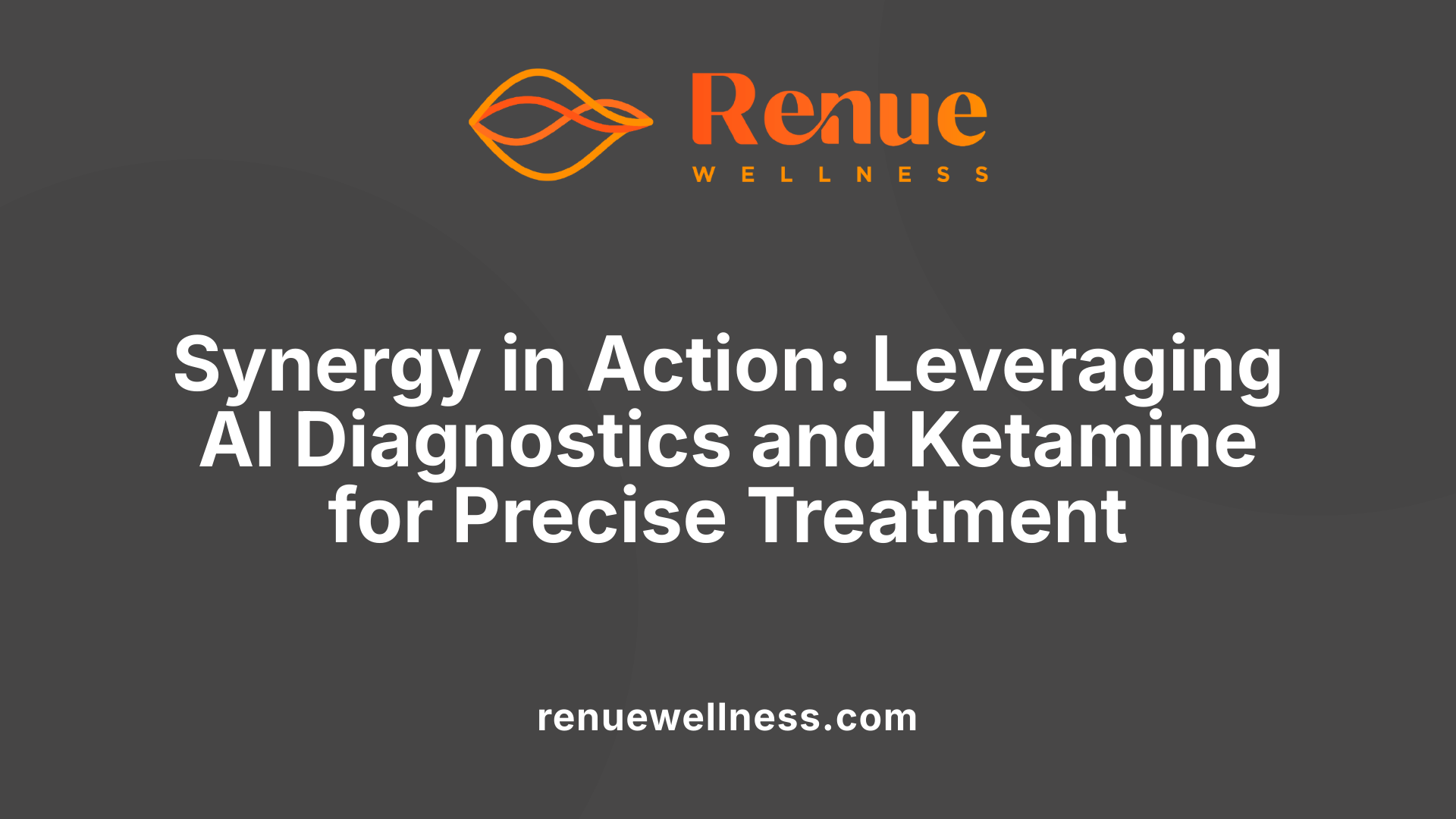
How might the combination of ketamine treatments and AI diagnostics shape the future of mental health care?
The integration of ketamine therapies with artificial intelligence (AI) diagnostics heralds a new era in mental health treatment, focusing on personalization, speed, and precision. AI-powered tools can analyze vast amounts of data—from biomarkers like RNA to sensors tracking physiological responses—in order to rapidly identify individuals who might benefit from ketamine as a treatment option.
This combination allows clinicians to diagnose mental health conditions more early and accurately by recognizing subtle patterns that may elude traditional methods. AI models can assess genetics, environmental factors, and behavioral data to construct a comprehensive profile of a patient's mental health, making it possible to determine the best candidates for ketamine therapy.
Furthermore, AI supports real-time monitoring of treatment responses. Wearable devices and mobile apps track physiological signals and mood fluctuations, providing continuous feedback that can inform dose adjustments and timing of subsequent sessions. This personalized approach not only enhances effectiveness but also reduces the risk of side effects.
Remote support platforms and telepsychiatry powered by AI extend the reach of mental health services, especially for patients in underserved areas. Virtual assistants and chatbots offer 24/7 immediate support, reducing stigma and encouraging early intervention.
In addition, predictive models using AI can forecast treatment outcomes—such as likelihood of remission or relapse—helping clinicians fine-tune therapeutic strategies.
The vision for this combined approach is a highly responsive, accessible, and tailored mental health care system. By harnessing AI's ability to analyze complex data and ketamine's rapid neurochemical effects, future treatments could be faster, more precise, and more humane.
AI for early and accurate diagnosis
AI's capabilities extend beyond treatment to enhancing diagnostic accuracy. Machine learning algorithms analyze neuroimaging, genetic data, and language patterns to detect early signs of disorders like depression, anxiety, and even neurodegenerative diseases. This helps clinicians identify issues before they fully manifest, allowing for early intervention.
Personalized dosing and response monitoring
AI-driven insights help determine optimal ketamine doses tailored to each individual's unique biological makeup, improving safety and efficacy. Continuous monitoring via apps and wearables provides real-time data, enabling dynamic adjustments during treatment.
Remote support and telepsychiatry
AI-powered virtual support systems make mental health services more accessible. They offer immediate assistance, symptom tracking, and support communication with clinicians, making ongoing management far more flexible and stigma-free.
AI-based prediction of treatment outcomes
Predictive analytics estimate the likelihood of treatment success, allowing clinicians to choose the most promising interventions for each patient. AI models analyze multimodal data—including neuroimaging, biological markers, and behavioral responses—to forecast long-term outcomes and relapse risks.
| Aspect | How AI Enhances It | Impact |
|---|---|---|
| Diagnosis | Analyzes neuroimaging, genetics, language data | Early detection, improved accuracy |
| Treatment Personalization | Monitors physiological signals, adjusts doses dynamically | Better response rates, fewer side effects |
| Remote Support | Virtual assistants and telepsychiatry platforms | Greater access, reduced stigma |
| Outcome Prediction | Integrates multimodal data for prognosis | More effective, targeted interventions |
Ethical considerations and future outlook
While promising, this integration must navigate challenges like data privacy, bias in algorithms, and maintaining human oversight. Ensuring ethical use, transparency, and cultural sensitivity remains vital. Nonetheless, the combination of ketamine’s rapid effects with AI's analytical power holds great promise for making mental health care more effective, personalized, and accessible.
Transforming Psychiatric Therapy with AI and Ketamine
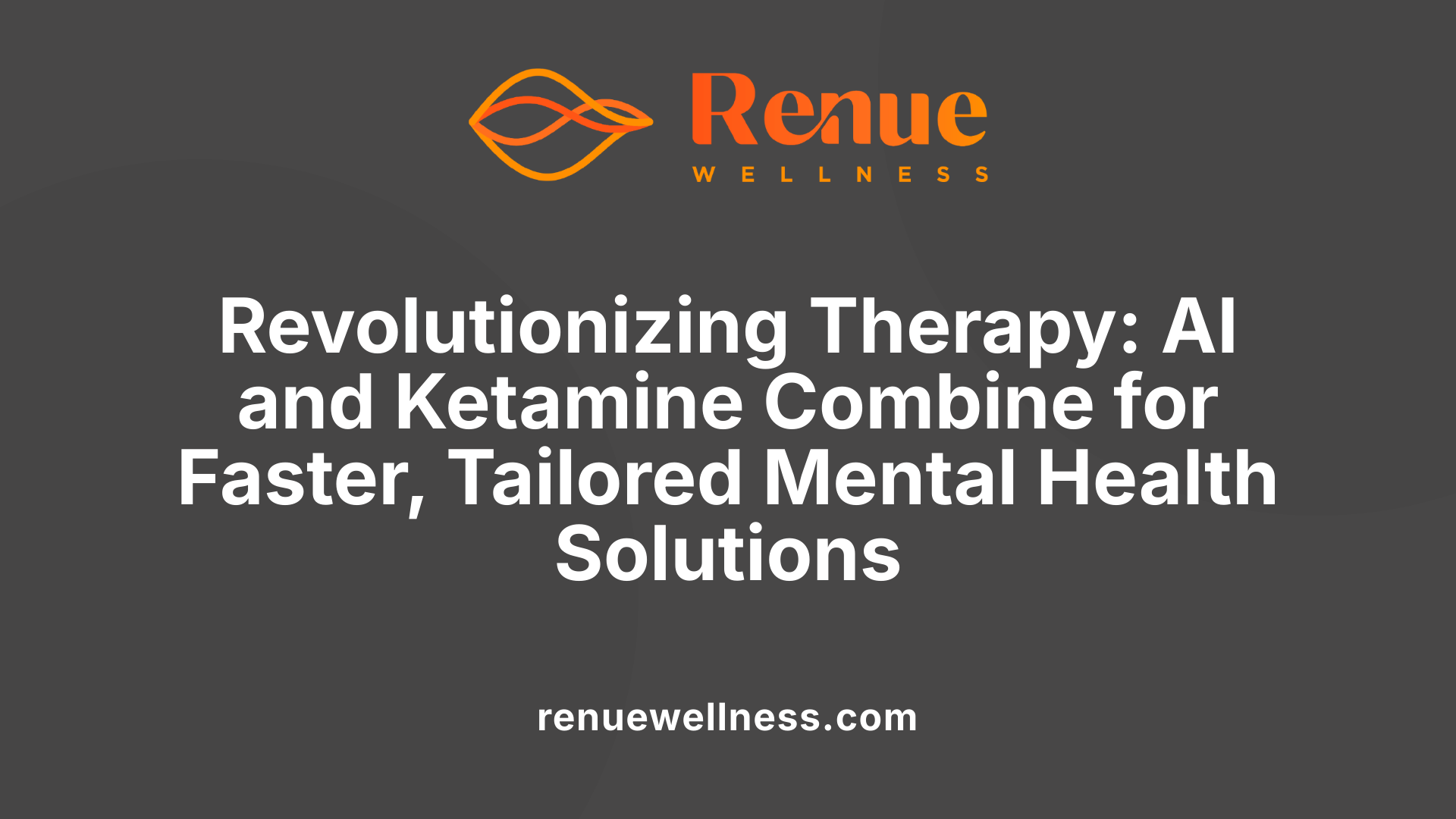
How could AI and ketamine integration transform psychiatric diagnosis and therapy?
The combination of artificial intelligence (AI) and ketamine presents promising advances in mental health care. AI systems can analyze vast and complex datasets, including electronic health records, neuroimaging, genetic information, and behavioral data, to identify subtle patterns that signal early signs of mental health disorders. This enables clinicians to detect conditions such as depression, anxiety, or schizophrenia more accurately and at earlier stages.
Ketamine, known for its rapid antidepressant effects, offers immediate symptom relief, which can be crucial for severe cases. When paired with AI-driven personalized treatment planning, clinicians can optimize dosing schedules, monitor patient responses in real-time, and adjust therapies promptly. This tailored approach maximizes therapeutic benefits while minimizing adverse effects.
AI also aids in drug repurposing and biomarker discovery. By analyzing biological data and knowledge graphs, AI can identify new uses for ketamine and related compounds, potentially broadening their applications in mental health treatment. Such insights foster the development of more effective interventions and can help uncover biomarkers predictive of treatment response.
Integrating AI with ketamine therapy can improve safety and efficacy by selecting suitable candidates based on their biological and behavioral profiles. Continuous monitoring through AI tools ensures long-term outcome tracking, helping to reduce risks like misuse or adverse reactions.
Despite these advantages, it is critical to address ethical and safety concerns. Careful regulation, adherence to safety protocols, and ongoing clinical validation are necessary to prevent misuse and ensure responsible application. As the technology evolves, combining AI and ketamine could revolutionize psychiatric diagnosis and therapy, making personalized, effective, and swift mental health care a widespread reality.
Ethical and Clinical Considerations in AI-Ketamine Integration
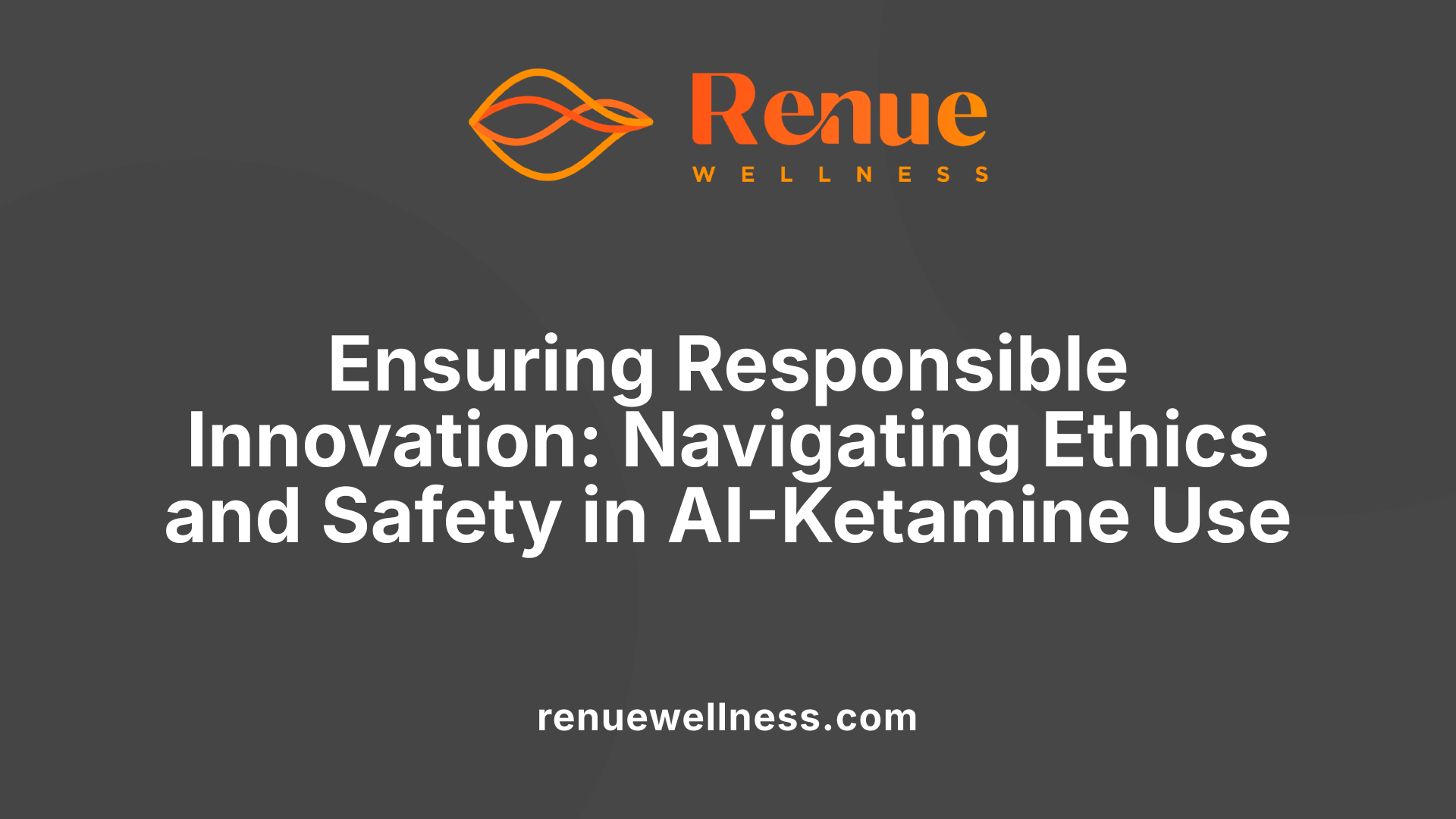
What are the clinical and ethical considerations of combining ketamine treatment with AI diagnostics?
Integrating AI diagnostics with ketamine treatment for mental health conditions involves complex clinical and ethical aspects. Clinically, it is essential to ensure patient safety through continuous monitoring of treatment efficacy and potential side effects. AI tools can assist in predicting treatment responses, but they are not replacements for human judgment, and their limitations in understanding the nuances of human emotions must be acknowledged.
From an ethical standpoint, responsible use of AI requires strict adherence to principles like transparency, fairness, and accountability. Patients need clear information about how AI systems analyze their data and influence treatment decisions. Data privacy is paramount; sensitive mental health data must be securely stored and handled to prevent misuse or breaches.
Another significant concern is bias and fairness. AI models trained on limited or non-diverse datasets risk biases that could affect diagnosis and treatment, perpetuating disparities. Ensuring transparency of algorithms helps build trust and allows for scrutiny of potential biases.
The role of human oversight remains vital. Empathy, emotional understanding, and ethical judgment are areas where AI still cannot replace clinicians. Maintaining human contact and compassion in treatment is crucial, especially given the vulnerability associated with mental health care.
Regulatory and ethical frameworks are necessary to govern AI’s deployment in this sensitive area. They should include guidelines for data management, consent procedures, and accountability measures. Overall, the integration of AI with ketamine treatment must prioritize patient safety, uphold ethical standards, and foster trust through transparent, fair, and compassionate practices.
How can these considerations influence future AI-driven mental health solutions?
Addressing these concerns will shape the development of future AI tools, emphasizing explainability, inclusivity, and ethical accountability. Incorporating patient-centered approaches ensures technology complements human judgment rather than replaces it. As AI becomes more integrated into mental health treatments, establishing and continuously updating robust ethical standards will be essential for safeguarding patient well-being and promoting equitable access to innovative therapies.
Future Trends and Policy Directions
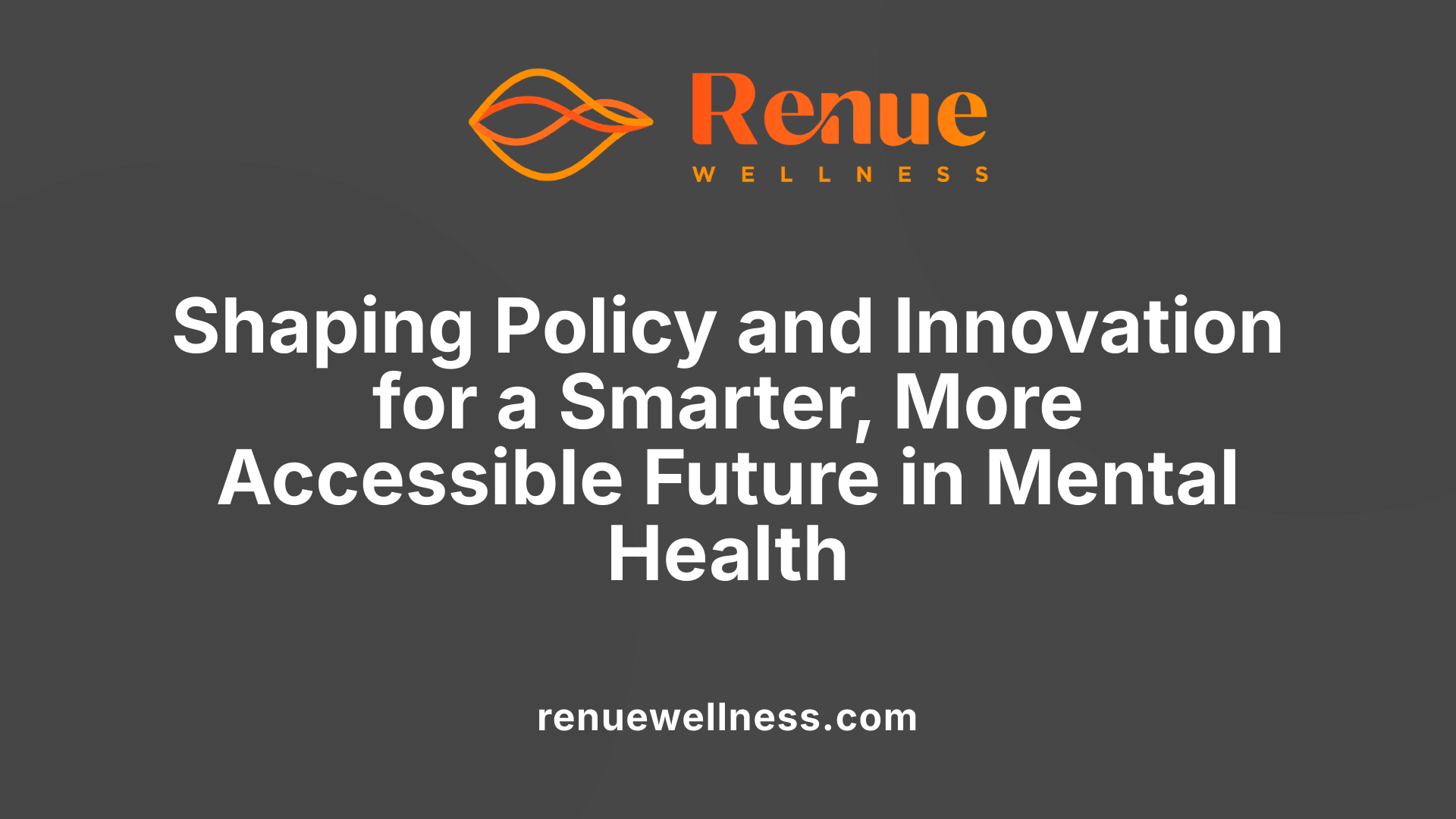
What are some recent technological and pharmaceutical innovations in mental health treatment involving AI?
Recent developments in AI-driven mental health care highlight an impressive array of technological innovations. Natural language processing (NLP) and facial analysis tools are now being employed to detect early indicators of mental health disorders such as depression, anxiety, and schizophrenia. These tools analyze speech patterns, facial expressions, and even social media activity to identify subtle changes that may signal a looming crisis.
Virtual mental health assistants, including popular chatbots like Woebot and Wysa, are providing around-the-clock support. These AI chatbots help reduce stigma by offering accessible, non-judgmental interaction, especially for populations with limited access to traditional care. They also assist in early diagnosis by engaging users regularly and assessing their emotional states.
In personalized treatment, AI analyzes genetic, behavioral, and physiological data to tailor interventions to individual needs. This approach enhances therapy effectiveness and supports early intervention efforts, potentially reducing the severity of mental health conditions.
AI's role extends into digital therapeutics, where it monitors patient progress and predicts risks through continuous data collection. For example, wearable devices and mobile apps powered by AI track physiological signals and behavioral patterns, alerting clinicians to any concerning changes in real time.
Ongoing research and development focus on integrating AI into clinical decision-making. Predictive models help clinicians understand patient trajectories better, guide treatment adjustments, and improve overall outcomes.
Despite these advancements, addressing ethical concerns about data privacy and algorithm transparency remains critical. Regulatory frameworks are being developed to ensure these innovative solutions are deployed safely and responsibly.
Collectively, these technological and pharmaceutical innovations aim to revolutionize mental health care by making diagnosis earlier, treatments more personalized, and support more accessible, ultimately improving the quality of life for many individuals.
The Role of Multidisciplinary Collaboration
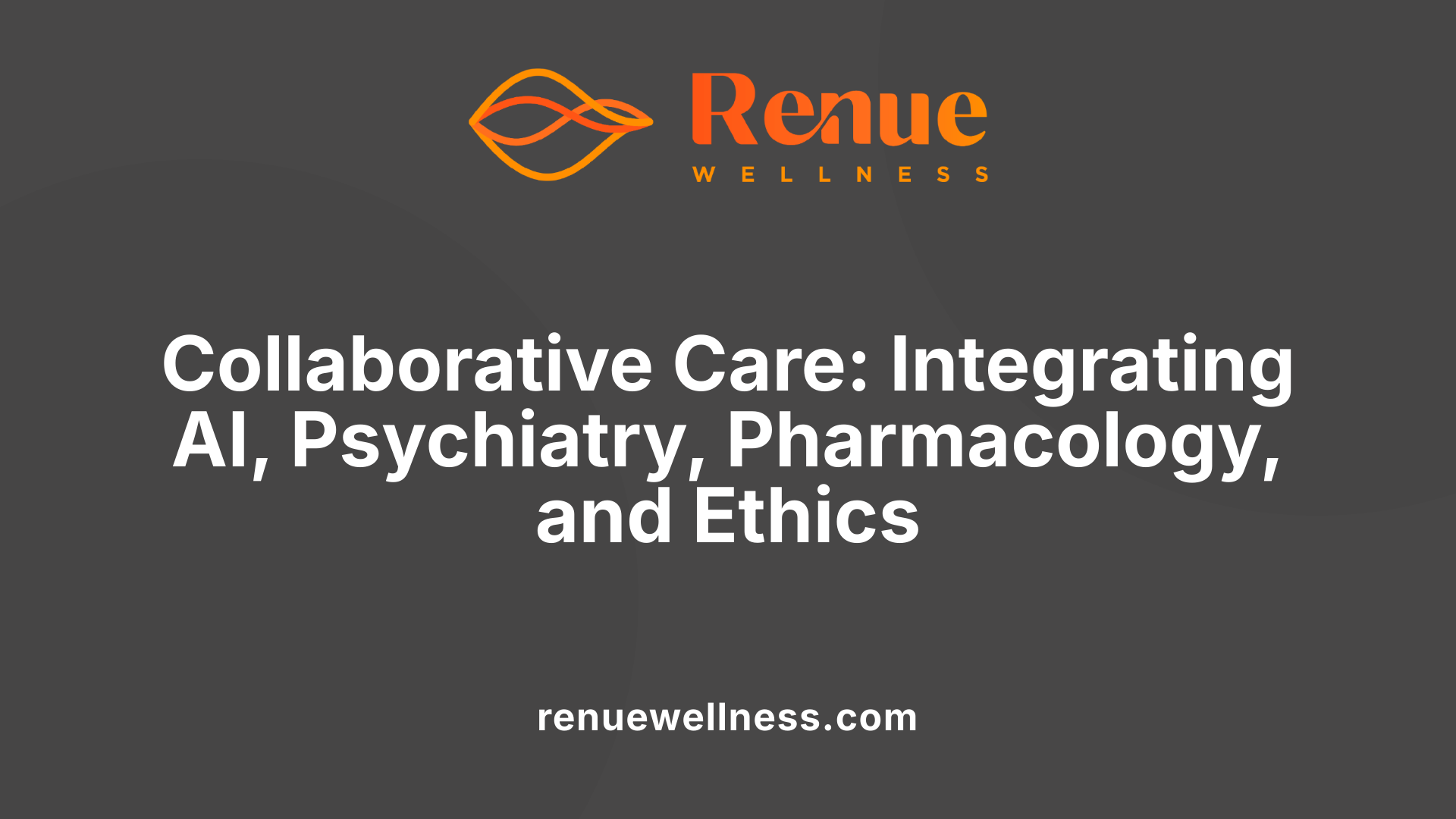
How can integrating AI, psychiatry, pharmacology, and ethics enhance mental health care?
Effective mental health treatment benefits from the combined expertise of AI technology, psychiatry, pharmacology, and ethical standards. AI provides advanced tools for early diagnosis, personalized treatment, and continuous monitoring, while psychiatry offers clinical insights into patient care. Pharmacology contributes knowledge about medication management, including novel treatments like ketamine, which has shown rapid antidepressant effects. Ethical oversight ensures patient privacy, informed consent, and fair use of AI applications.
By working together, these disciplines can develop comprehensive care models that are scientifically grounded and ethically responsible. For instance, AI models can analyze clinical data and genetic factors to inform personalized medications, including ketamine, and optimize dosing strategies.
Why is training clinicians in AI tools important?
Clinicians need proper training to effectively incorporate AI tools into their practice. Understanding how AI algorithms work, their limitations, and how to interpret their outputs is critical for making informed decisions.
Training programs can include modules on data privacy, bias mitigation, and the practical use of AI-powered diagnostics and treatment platforms. Well-trained clinicians can leverage AI to better predict treatment responses, monitor patient progress, and adapt therapeutic approaches, including novel options like ketamine-based therapies.
What about developing ethical guidelines and standards?
Establishing clear ethical guidelines is essential for guiding AI's role in mental health care. Issues such as data security, algorithm transparency, bias reduction, and accountability must be addressed.
Standards should also define responsible use of AI in diagnosis and treatment, ensuring that human oversight remains central. For example, when deploying AI-assisted ketamine therapy, clinicians retain ultimate authority, and AI recommendations are used as decision support.
How does collaboration extend to research and data sharing?
Research collaboration allows for large, diverse datasets that improve the robustness of AI models. Sharing anonymized data across institutions fosters innovation and accelerates discovery.
Multidisciplinary research teams can explore new diagnostic markers, refine predictive models for treatment response, and validate AI tools in varied populations. Such cooperation also supports the development of guidelines specific to integrating AI with emerging therapies like ketamine.
Why is public engagement and education necessary?
Educating the public about AI's capabilities and limitations helps build trust and acceptance. Clear communication about privacy protections and the role of human oversight reassures patients.
Public engagement also encourages feedback on AI applications, guiding ethical improvements and ensuring that innovations align with patient needs and cultural sensitivities.
Supporting scientific insights for AI-based therapies involving ketamine
Scientific research underscores ketamine’s rapid antidepressant effects, especially for treatment-resistant depression and acute suicidal ideation. These findings support its integration into mental health treatments. AI amplifies this potential by enabling early detection of mental health issues through speech, facial analysis, and electronic health records.
AI-driven personalized plans can optimize ketamine dosing, monitor patient responses in real time, and predict outcomes to enhance safety and effectiveness. Virtual therapists and remote monitoring empower ongoing support, reducing barriers to care.
Overall, combining AI with ketamine therapies rooted in scientific evidence promises more rapid, personalized, and accessible mental health care. Ongoing collaborative efforts across disciplines are essential to realizing this potential safely and ethically.
Paving the Way for a New Era in Mental Health Care
Integrating ketamine therapy with AI diagnostics embodies a visionary step towards a more responsive, personalized, and accessible mental health system. As scientific understanding deepens and technological innovations advance, collaborative efforts across disciplines will be essential in overcoming ethical challenges and ensuring equitable access. This synergy promises not only enhanced clinical outcomes but also a fundamental shift in how society perceives and manages mental health, fostering compassion, innovation, and hope for millions worldwide.
References
- Enhancing mental health with Artificial Intelligence: Current trends ...
- Artificial intelligence in positive mental health: a narrative review
- Practical AI application in psychiatry: historical review and future ...
- Artificial intelligence in mental healthcare: an overview and future ...
- Is AI the Future of Mental Healthcare? | Topoi
- The application of artificial intelligence in the field of mental health
- Enhancing mental health with Artificial Intelligence: Current trends ...
- Ketamine for the treatment of mental health and substance use ...
- The Future of Mental Health: Ketamine and Its Evolving Role
- Ketamine Brightens the Future of Mental Health - Intentional Insights
Recent Posts
Conditions Treated
AnxietyDepressionOCDPTSDPostpartum DepressionPain ManagementSubstance AbuseSuicidal IdeationOur Location


